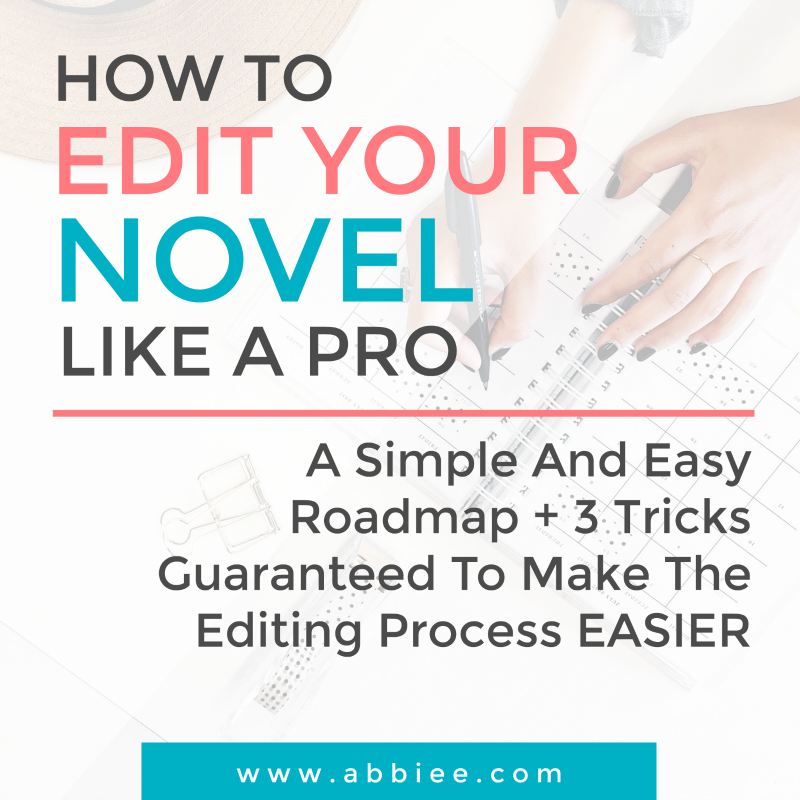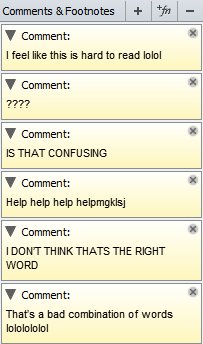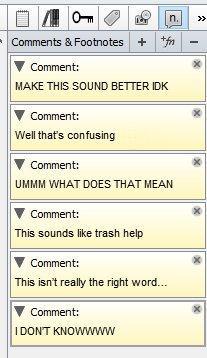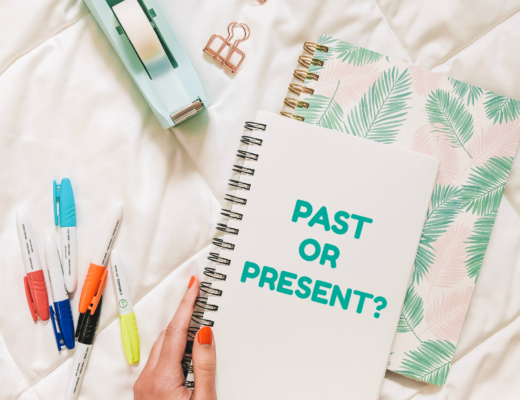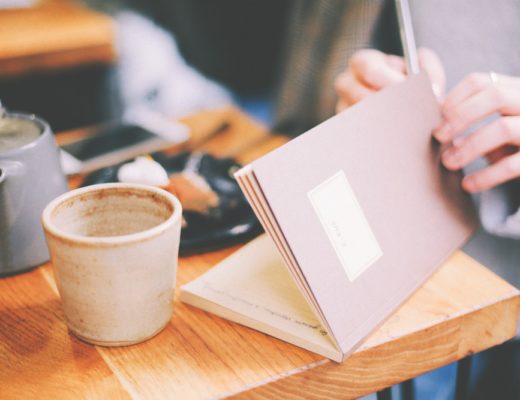Ah, editing: the bane of every writer’s existence. Why is it so hard to edit your novel? Maybe it’s because EDITING JUST SUCKS. Or maybe it’s because you’re doing it wrong. I’ve been editing my own writing for the past 10 years, and through trial and error, I’ve learned a thing or two. That’s what today’s post is about.
OH YEAH RODNEY. TODAY I’M GOING TO TALK ABOUT MY EDITING PROCESS. It has taken me a long time to formulate a concise “process” that ACTUALLY WORKS. And I am definitely not an expert — bUT I’M CLOSE, BRO. I clean up my novels pretty good.* And I have a few tricks and methods that help me to take a pile of rubbish (aka the First Draft™) and turn it into something beautiful.
But before we begin, here’s a small disclaimer: every writer is unique and different, so you have to find your own path and figure out the best way to edit FOR YOU. I’m a plotter; you might be a pantser. If so, our editing processes might look totally different! And that’s 100% okay. This is just a peek inside my editing process BECAUSE I’M SURE YOU’RE ALL CURIOUS. Right?? no??? I’m the only one who is curious about my own editing process even though I know everything about it??? HAHA. LET’S GET STARTED.
*horrible pun not intended???
YOU HAVE A MESSY FIRST DRAFT. NOW WHAT?
THE FIRST DRAFT. UGH. It’s a mess, and we all know it. That’s why editing is so daunting: because WE’RE NOT SURE WHERE TO GO FROM HERE. The thing is, that first draft is a GOLD MINE. And sometimes it doesn’t even need much more polishing before it’s ready for everyone to read! I KNOW. SCARY THOUGHT. But let’s just see what exactly goes into the process of editing. It’s not that daunting when you have a roadmap to follow. The reason why most writers are paralyzed by the idea of editing is because 1) it’s hard to look at your own work objectively, 2) editing might not be our primary talent, and 3) IT’S TERRIFYING OKAY I’LL ADMIT IT.

But remember: everything is less terrifying with a roadmap. Why was the Oregon Trail so scary, huh?? NO ROADMAPS. NO ROADS. NO GPS. So don’t go traversing the wilderness of editing without any sense of direction. SET YOURSELF UP FOR SUCCESS. When you set out to edit your novel, you should be prepared. Which leads us to the first step:
LET IT SIT FOR A WHILE
SO EXCITING, RIGHT?? No. But this is such an important step. If you just finished writing your first draft and you love it and YOU CAN’T WAIT to have other people read it… RESIST THE URGE. You’ll be so glad you did. See, as artists, we are too close to look at our work objectively. That’s why it’s important to give yourself some space. Just like every good relationship, absence makes the heart grow fonder.* Or…more…discerning. When you let your first draft sit for a few weeks/months, your memories of it begin to fade and then when you pick it back up, it will almost be like reading someone else’s book!** Keyword: almost.
THIS IS ONE OF THE HARDEST PARTS FOR ME. Why? Because I like reading my own books more than I like reading other people’s books. IT’S SO BAD BUT IT’S TRUE. After I finish writing a book, I set it aside for a while so that I’ll be able to edit it with fresh eyes. But it’s so hard to resist reading!! EVEN JUST STEALING A FEW GLANCES AT. To some degree, I’m lowkey disgusted by my own writing. But I also really love it sometimes. It makes me laugh. AND SOMETIMES MY FIRST DRAFTS COME OUT ABSOLUTELY BEAUTIFUL. I love the characters and I just want to read about them 25/8. That being said, this is a difficult step for me. But for some writers who hate reading their own work, this might be the easiest step. SEE? EVERYONE IS DIFFERENT.
*yes I’m single and the closest I’ve ever been to “being in a relationship” is between me and my books. THEY ARE MY FIRST LOVE.
**OR MAYBE THIS IS JUST ME. [hides face in pillow to stop myself from saying something self-deprecating about my memory]
DEVELOPMENTAL EDIT
OKAY TIME FOR A HUGE CONFESSION: I don’t developmental edit my books. I KNOW. HORRIBLE. *whacks my own hands with a rule* But it’s true. I’m a hardcore plotter. I write ridiculously detailed outlines and fix all the plot holes in a story long before I ever sit down to write chapter one. THIS IS WHAT WORKS FOR ME. It has taken me a long time to discover my writing process, and…it’s plotting. I can write my best when I have a super specific roadmap to follow. Not every writer is a plotter and even some plotters don’t plot as intensely as others. YOU’VE GOTTA FIND WHAT WORKS BEST FOR YOU.
In normal circumstances, this is the part where you read through your entire novel and make changes to the story itself. I like to fact-check things I’m not sure about, research other things that I might not have diligently researched before I started writing, and write comments to myself. This part is fun because you don’t have to be coherent. At all. Here are some of my super professional developmental editing notes:
So basically: if I run into something majorly wrong with the plot while I’m reading through my novel, I fix it. This is a good time to make lots of notes and maybe even discuss your problems with a writer friend/support group if you feel stuck. Work out the kinks in your story before you bother with line editing and grammar. BUILD THE HOUSE BEFORE YOU DECORATE IT. That sort of thing.
LINE EDIT
I DON’T KNOW ABOUT YOU, BUT THIS IS THE MOST STRESSFUL PART FOR ME. Self-doubt begins to attack at this stage of the game. You might have a great roadmap, but YOU STILL DON’T FEEL LIKE AN EDITOR. Don’t worry — you’re not alone. Line editing is tricky because you have to be super objective about your own words. You have to find everything wrong with your sentence structure, word choice, character voice, etc.
BUT IT’S ACTUALLY NOT AS TERRIBLE AS IT SOUNDS. (And at the end of this post, I’ll tell you a few secrets that will make so line editing SO MUCH EASIER and even fun.) When you’re line editing, it’s hard to not oVERTHINK EVERYTHING. I often feel like “I have to make this FLAWLESS” < but that’s a lie. Don’t strive for perfection. Just look at one sentence at a time and try to improve it. AND NOT EVERY SENTENCE NEEDS IMPROVEMENT. Believe it or not, your first draft is really good. It just needs polishing. That’s what line editing is for.
You can do this a few different ways. I used to print off my novels on paper and mark them up with red ink, then enter the edits into my digital manuscript. But then I discovered that I actually enjoy line editing on my computer much more. SO TRY NEW THINGS. Figure out what works best for you.
LET SOMEONE READ IT

DID I ALREADY SAY WHAT THE SCARIEST PART WAS??? I WAS WRONG. THIS IS THE SCARIEST PART. Honestly, what could be more terrifying than taking this beautiful child of your imagination and let someone else read it?? SEE INSIDE YOUR HEART AND SOUL AND GUTS. It’s terrifying, I know. But every writer has to face this reality at some point.
Here’s why it’s important to let someone else read your book: you’ll NEVER be able to look at your book 100% objectively. SOMEONE ELSE CAN. Pick a person whom you trust but who will also give you the unvarnished truth. For me, that person is my mom. She loves reading my books and OBVIOUSLY I TRUST HER and she is always honest with me (even when it hurts lol.) THIS IS WHAT YOU WANT.* Don’t be afraid to let someone else read your book. It’s better than you think. And if you’re thinking about publishing one day, YOU BETTER PREPARE YOURSELF. Because like…hundreds and thousands of people are going to read it. MILLIONS OF PEOPLE. AND THEN IT’S GOING TO BE TURNED INTO A MOVIE. OR A 12-SEASON SERIES. Don’t be afraid to dream big, either. Anything is possible.
*not my mom — YOU CAN’T HAVE HER SHE IS ALL MINE
LET IT SIT FOR A WHILE (AGAIN)
HERE’S THE THING: you, as a writer, are changing all the time. Two months from now you might pick up that “polished” manuscript and see more things you’d like to change about it. THIS STEP IS KIND OF OPTIONAL. I’m just a paranoid control freak and I like to MAKE SURE (as much as one can make sure) that my story is the best it can be. Also I am constantly plagued by plot bunnies so I’LL BE OVER HERE WRITING ANOTHER BOOK WHILE I FORGET ABOUT THIS ONE. It all works. But again: FIND YOUR OWN PROCESS. Every writer is different.
HIRE A PROFESSIONAL EDITOR
OH YEAH HONEY THINGS JUST GOT SERIOUS. You might be asking yourself, “why go through all of this editing myself if I’m just going to get it professionally edited?” BECAUSE IT’S THE RIGHT THING TO DO, SON. If you edit your novel, you not only learn how you can improve and grow as a writer — you also do the professional editor (and yourself) a favor by cleaning up your manuscript. The easier your book is to read, to less expensive an editor is going to be.
I’ve yet to have any of my books professionally edited BUT I HOPE TO CHANGE THAT IN 2018. This summer I’m going to send one of my books to a professional editor and start exploring that avenue. (I’ll let you know how it goes!) Even if you aren’t going to publish right away, it’s a good idea to get your books polished and ready to go. Inventory is important; and so is your self-confidence! I speak from experience when I say: IT FEELS SO GOOD TO HAVE A POLISHED FINISHED MANUSCRIPT. Do it just to feel like professional writer, bro.
AND NOW: 3 TRICKS THAT ARE GUARANTEED TO MAKE THE EDITING PROCESS EASIER
HEY LOOK YOU MADE IT THIS FAR *high fives* you deserve waffles, my friend. But! I have something better! Super special secret extra bonus tricks that help me SO MUCH when I’m editing my novel. Maybe you already know about them but I HOPE NOT because I like to be the Genius Inventor Of All Things™.
#1: CHANGE THE FONT WITH EVERY ROUND OF EDITS
IT’S AMAZING HOW MUCH THIS HELPS. Do you always write in a particular font? Change it when you read through to developmental edit! Then change it again for your line editing. Then change it again when you go back to read it later. See, our eyes get used to reading the same font over and over again — making it harder to recognize errors. ESPECIALLY TYPOS OH MY GOSH. Do you know how many times I’ve read a particular chapter/scene OVER AND OVER AND OVER AGAIN, only to return another time and find a typo/???? IN ONE OF MY FAVORITE LINES???? THAT I’VE MEMORIZED BY HEART?????? it’s kind of creepy, actually. But I notice a huge difference when I change up the font. Fresh eyes, fresh look, everything is just fresh frESH FRESH. IT’S LIKE LAUNDRY DETERGENT OK.
#2: USE HEMINGWAY EDITOR (IT WILL SAVE YOUR LIFE)
I discovered Hemingway through a Tumblr post a while ago and HOLY BUCKETS. LIFE WILL NEVER BE THE SAME AGAIN. Hemingway is a writing assistant — kind of like Grammarly but EVEN BETTER IN MY HUMBLE OPINION. You can use it online for free or buy it for $20. Instead of simply highlighting grammar mistakes and spelling errors, it:
- finds adverbs (!!! BIG DEAL FOR CREATIVE WRITERS)
- tells you when a sentence is too hard to read
- tells you when a sentence is VERY hard to read
- highlights passive voice
- finds complicated words and offers simpler suggestions
- tells you the grade level reading
- estimates how long it takes a person to read your text
I LOVE IT OKAY I JUST LOVE IT. EVERY WRITER NEEDS IT. I use Hemingway at the last stage of my line editing. After I line edit a chapter, I paste it into Hemingway and take a closer look at things that need fixing. I especially LOVE the adverbs feature. I never knew how much I use the word “just” until I got Hemingway. *nervous laughter* I USE IT A LOT. IT’S NOT GOOD. But Hemingway saves me so much stress, bro. I’m not sponsored by them or anything lol I JUST REALLY LIKE THIS PROGRAM. GO TRY IT.
#3: DON’T OVERDO IT
I know how it feels to start a project and gain momentum and feel like “BRO I COULD DO THIS ALL DAY WOOOO!” But a word to the wise: don’t do this to yourself while editing your novel!! Not only will it lead to burnout, it will also cheapen your performance. What I mean by that: you won’t be as good of an editor at hour 5 as you were at hour 1. Editing is hard work! Taking breaks is essential. Break up your time spent editing — go for a walk, get some fresh air, make cinnamon rolls, watch a movie. DO SOMETHING CHILL AND REFRESHING. Then you can go right back to work with a full charge.
THAT’S IT!
THAT’S MY EDITING PROCESS. It works for me and I hope it works for you, too. There is something super fulfilling about taking the time to edit your novel. It’s a labor of love — but IT’S SO WORTH IT. You’ll be happy and proud of yourself for persevering to the finish line. Make your novel something that you could let a person read. YOU’RE A WRITER. AND A GIFTED ONE, TOO. Believe in yourself. Put in the work. You’ll be so happy with the results.
TALK, BRO
What does YOUR editing process look like?? DO TELL ME IN THE COMMENTS! What do you think of editing? Is it kind of a love/hate relationship?? Have you ever tried any of these methods I talked about today? OH AND HAVE YOU TRIED HEMINGWAY??? PLEASE DO. What’s your favorite font to write in? What is your favorite part of the editing process? Mine is celebrating on the couch with waffles and Downton Abbey. No surprise there.
rock on,
abbiee

